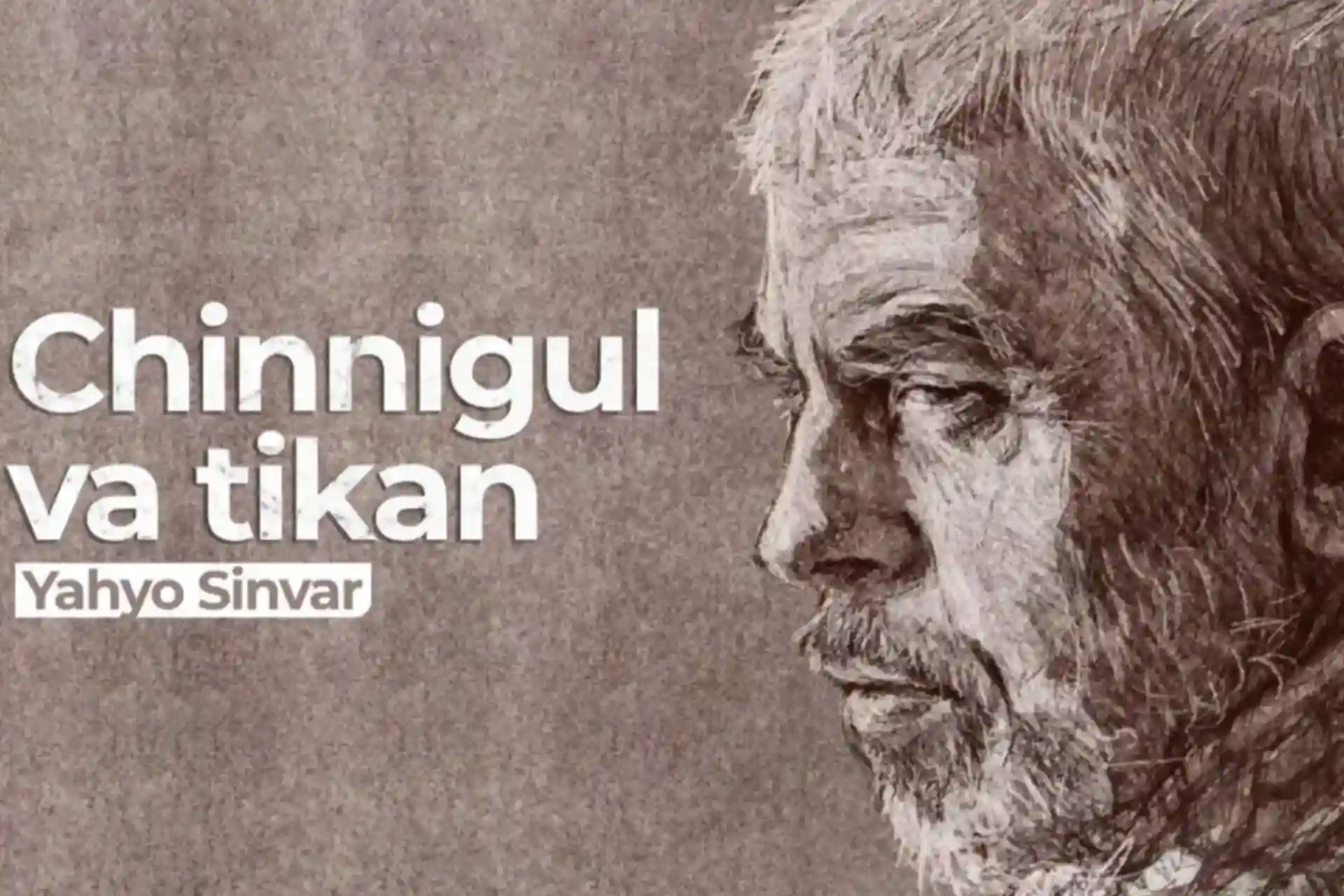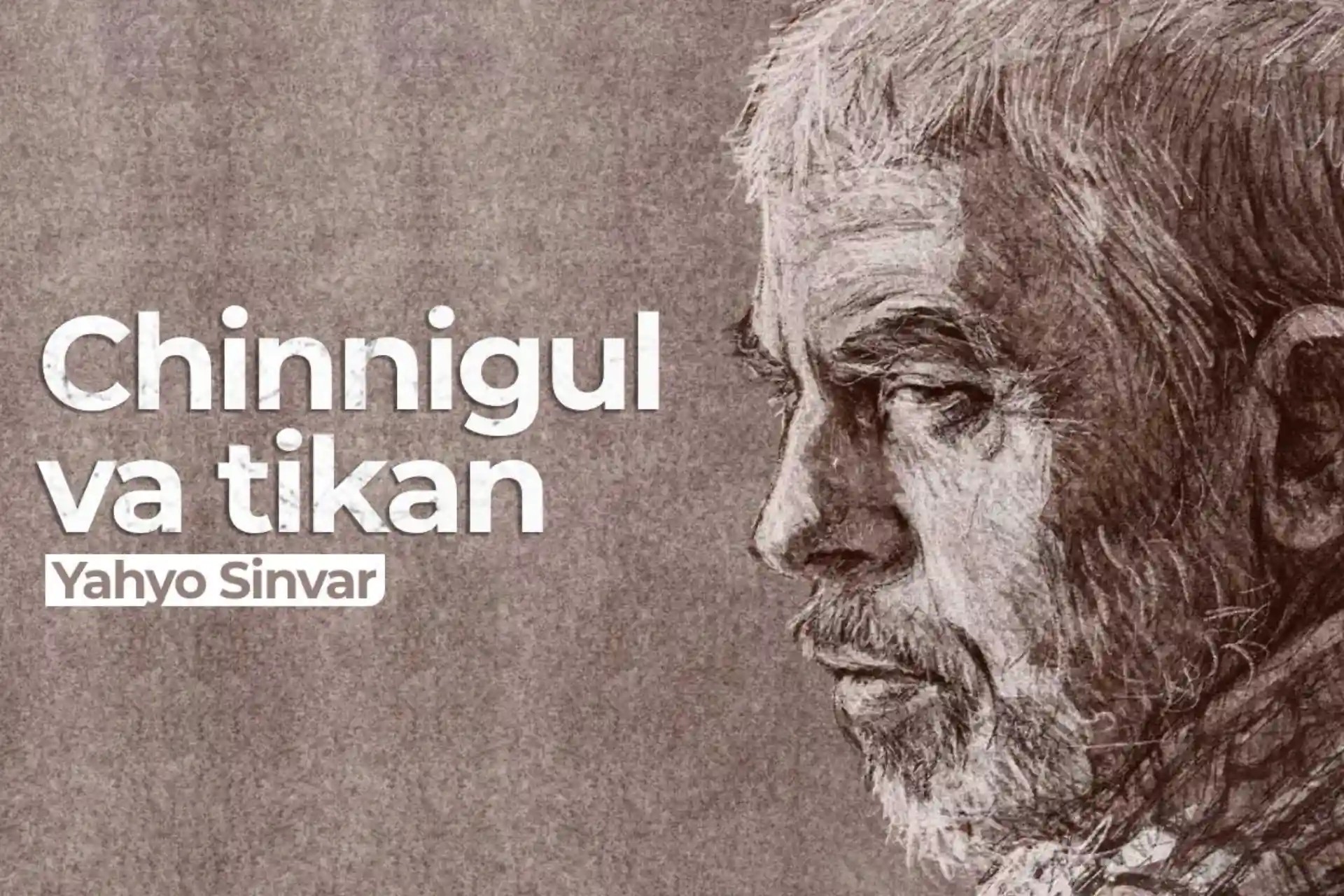17.12.2024 15:41
"The Carnation and the Thorn" – Yahya Sinwar (story, part 14)
Season Eight
Every morning, around 7:30, the students from the first grade to the senior grade would go to their schools. A group of boys would follow the girls, and then another group of girls would follow them, and the flow of students would not mix. After all, it was not uncommon for boys and girls to fall into a whirlwind of love. The reason was that it was customary for the boys in the camp to treat the neighboring girls as if they were sisters. My mother always warned us against having relationships with members of the opposite sex. I remember her warning my brothers against flirting with the neighboring girls and interacting with them. She also often taught us that violating the honor of others was the beginning of an attack on ourselves. This prevented us from thinking like the boys who sit on the sidewalks and talk to the girls on their way to or from school.
Some young men would just sit down to look at her once or to say something like, "Where are you going, pretty girl?" Some young men would set off on a journey hoping to meet the girl they really liked, hoping to receive the letter they had written from the bottom of their hearts. If they could see the one they loved once, that day would be filled with happiness for them. Yes, people in the camp, despite their dark days and miserable nights, love, fall in love, and live like other people in other lands.
But, of course, the strict adherence to customs and the veil of chastity regarding romantic relationships with the daughters of their neighbors kept a thick veil of chastity. Therefore, most of their feelings were restrained. However, some young men dared to bypass these customs and wrote love letters to the girls. Sometimes they would meet on their way home from school. They would follow their beloved as if they were on their way, or pretend to be talking to their friends, and exchange letters. Some girls would open the window of their beloved's house and wait for him to pass by, and the young man would pass by, passing by with a love letter. Many of the girls who did this were caught by their parents while exchanging love letters and were punished. These love stories are extremely rare cases that occurred in the post-war camps. It was rare.
As for adults, in 1948, going to work in the occupied cities gradually became a common occurrence. As the number of people going there to work increased, new situations also increased. Every early morning, you could see people rushing to work, carrying their bags full of food. The workers would walk a long distance to the station. At the station, everything from buses and trucks to taxi drivers would stop. One would pick up people to Jaffa, another to Usdud, and another to Tel Aviv. Each taxi driver would call people, stating their destination. The workers would line up in their cars and leave.
This stop was a bustling market for those who prepared and sold bean dishes for breakfast. Workers would buy their food from them on the way and eat it on the way.
These workers worked in construction, farming, cleaning, or any other task that Jews considered difficult and menial. The owner of the work was a Jew, who gave orders, supervised, and watched the workers. At ten o'clock they were given a half-hour break. During this time they would eat, rest, make tea, and drink, and then return to their work. At three or four in the evening, they would go back to Gaza, the Gazans, and the West Bankers, to look for cars. They would travel two or three hours and return home exhausted.
Because the Jews considered the weekend to be the Sabbath and were preparing for it, they only worked until noon on Friday.
Some of the workers there worked as laborers. They would get paid daily or they would agree to work a week and get paid at the end of the week. After finishing the work, the next day they would go back to the square where the same laborers were stationed.
When a Jew in shorts arrived in a car, the laborers would gather around him, and he would choose the ones who were most suitable for his work. Some would find permanent jobs, and so on.
As relations between Jewish employers and Arab workers developed, it was common for the traveling workers to be given a place to stay for the week. They would leave on Sunday morning and return home on Friday afternoon, their pockets full of money and gifts from Israel in hand.
"The pain of the road is the pain of the grave"
Some workers, tired of the hardships of the journey, would rent houses in Qalqaliya or Tulkarem, and in this way they would try to save on the cost of the journey. Thus, Palestinian workers would live and work for weeks and months in an environment that was contrary to their customs and values. Most of them looked down on the environment there. However, "as if there was no rice without rice," some of the more frivolous ones would immediately be influenced and fall into their trap. That is, they would drink vodka, fall into the intrigues of bad women, and go to clubs and brothels. Another rare case was that some young men would meet a Jewish girl and, after their relationship developed, move to live in a similar way to their society.
As the flow of migrant workers increased, the need for another type of work grew. This was the work of porters who would take them to their destinations. As a result, a type of work emerged that would take workers who walked from their homes to the station in the morning to the station, and then take them home from the station when they returned. Now the number of people-carrying vehicles in the area had also increased.
Another incident related to the workers' lives was when a Jewish leader, having bought new equipment for his home to get rid of the old one, would give it to his worker, who would either bring it home or take it to a flea market where second-hand items were sold and make money from it.
Translated by Maʻʻmur Mukhtar, to be continued



